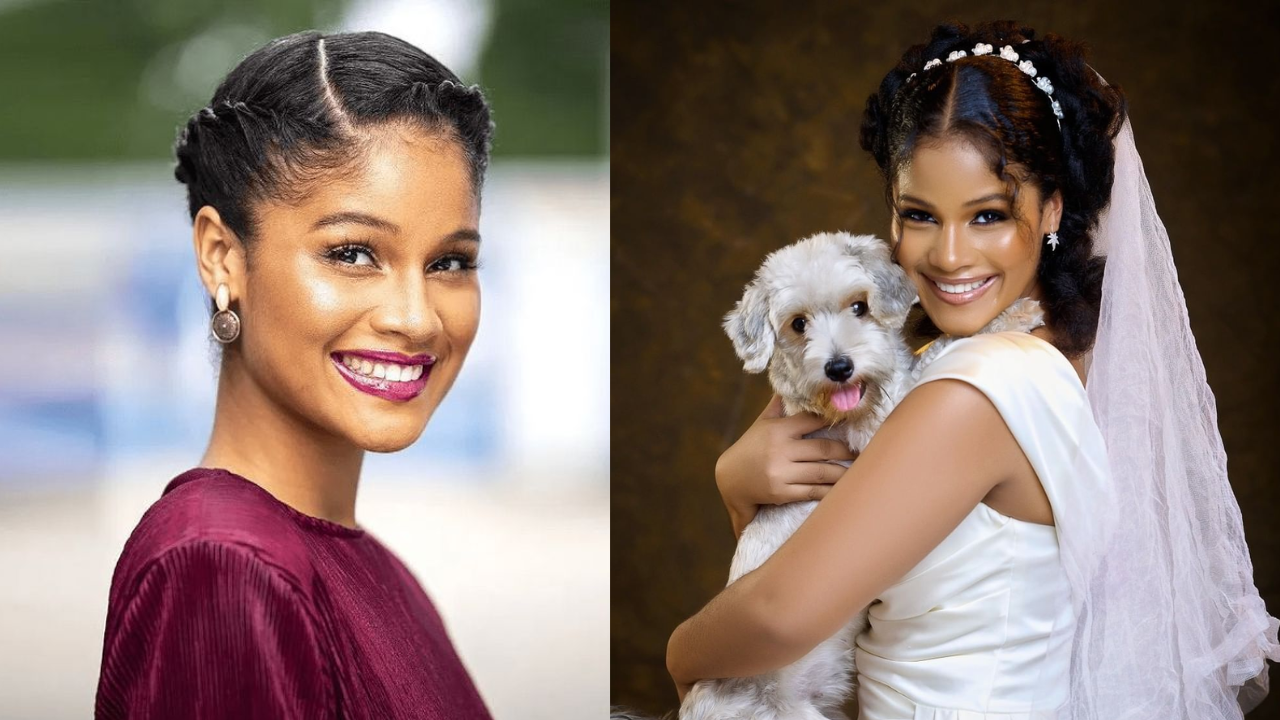ENTERTAINMENT

"I DREW INSPIRATION FROM LAGOS RUNS GIRLS – SUNSHINE ROSMAN ON HER ROLE IN TO KILL A MONKEY"
Actress Sunshine Rosman shares insights about her acting journey, her experience playing Amanda Sparkles in To Kill a Monkey, and more.
Tell us about your family background.
My mother is from Imo State, while my father is Canadian. I was raised in Ijeshatedo, Surulere (Lagos), before moving to Magodo, then Bode Thomas, and eventually returning to Ijesha. I was extremely close to my dad—he was actively involved in raising us and even did some cooking at home.
How did you get into acting?
Acting has always felt natural to me. My parents were very supportive. My sisters and I used to create short plays and songs, and no matter how tired our dad was after work, he would always watch us perform. Our household was filled with creativity—we all loved performing and watching movies together.
One time, I saw a Marilyn Monroe film and was captivated by how expressive she was. When my dad told me how famous she was, I knew immediately that I wanted to be like her.
Has Marilyn Monroe influenced your style or performances?
Not directly in terms of acting techniques, but her presence definitely left an impression. She had a way of lighting up every room she entered. When I put together my outfits, she’s often a part of my inspiration board.
How did your role in To Kill a Monkey challenge you?
It was a unique experience. I initially auditioned a year earlier but wasn’t selected. Just as filming was about to begin, I got a call to fill in. However, it clashed with my school exams. Balancing education and work has always been a struggle for me. I didn’t want to delay graduation, but I had always declared that I would work with Kemi Adetiba someday.
I wrote my exams, assuming I had lost the role. Then I had a dream where I was on a film set, fully dressed in makeup. I believed it was symbolic. Days later, while speaking in a radio interview—claiming I’d be in Kemi’s film before it was confirmed—I finally got the callback. Everything aligned perfectly.
What key lesson did the movie teach you?
It taught me that life is full of complexities. Every character had shades of both good and bad. The story showed that no one is entirely innocent or guilty.
Through Amanda Sparkles’ journey, the message is clear—when life knocks you down, don’t stay down. Take control of your narrative.
You’ve acted in both comedic and dramatic roles. How do you switch between them?
I rely on "anchors"—sources of inspiration for each character. For Amanda Sparkles, I drew from the mannerisms of elite Lagos sex workers. I often observe people in real-life settings—like clubs—and blend their energy with my own experiences. These anchors help shape my portrayal. Above all, I rely on God's grace.
Has your interest in languages helped your acting career?
Let me clarify: I don’t speak French fluently. Years ago, I studied at Alliance Française in Ikoyi and completed one level. At the time, I could manage basic conversations and even changed my phone language to French for immersion.
In an interview, I said I spoke "a little French," which was an overstatement. I can follow if it’s spoken slowly, but I’m not fluent. Still, I love learning new languages. If a role requires it, I’m willing to immerse myself—whether it’s learning Hindi or Spanish. Being open to languages opens more doors in acting.
How does your biracial identity influence your acting career?
Sometimes, it’s an advantage, but often a challenge. My appearance doesn’t fit the typical mold—either fully Nigerian or completely foreign. Casting directors sometimes struggle to place me in roles, especially family-based ones. International projects have similar hurdles. I often fall into an in-between category.
Does your chemistry with Bucci Franklin come from a personal connection?
I can’t say for sure, but Bucci is an outstanding actor. Working with him has always been a privilege. He’s not only talented but also a genuinely kind person. In this industry, you cherish opportunities to work with professionals who have both skill and character. I’m excited about more future collaborations with him.
Tell us about your involvement in charity work.
My family has always been involved in charity. The initiative was started by my mother, with strong support from my late father. It’s a lifelong commitment for us. Recently, my mom opened an orphanage in Abia State, which currently houses eight girls.
What are your dreams beyond Nollywood?
I want to be a global actor—not limited to Nollywood. I aim to take on roles in Hollywood, Bollywood, the British and Asian film industries. I want stories that challenge me and push my boundaries. My dream is to work on projects that resonate across cultures.
How does it feel sharing your birthday with your mother?
It feels special—it creates a deep bond between us. When I was younger, I wished for a separate birthday because my sisters had their own. I used to get a bit jealous. But now, I see it as a blessing we share.
Are there roles you would never accept?
Yes. I steer clear of overtly intimate scenes. Sometimes, filmmakers are too quick to sexualize attractive women, even in professional roles. Wardrobes can be unnecessarily revealing.
I don’t want to be reduced to a sexual object unless it serves a powerful narrative. Amanda Sparkles, for instance, wasn’t just a call girl—she was a crucial character who played a major role in the story’s turning point. That’s the kind of depth I’m drawn to.
"This represents a significant development in our ongoing coverage of current events."— Editorial Board









